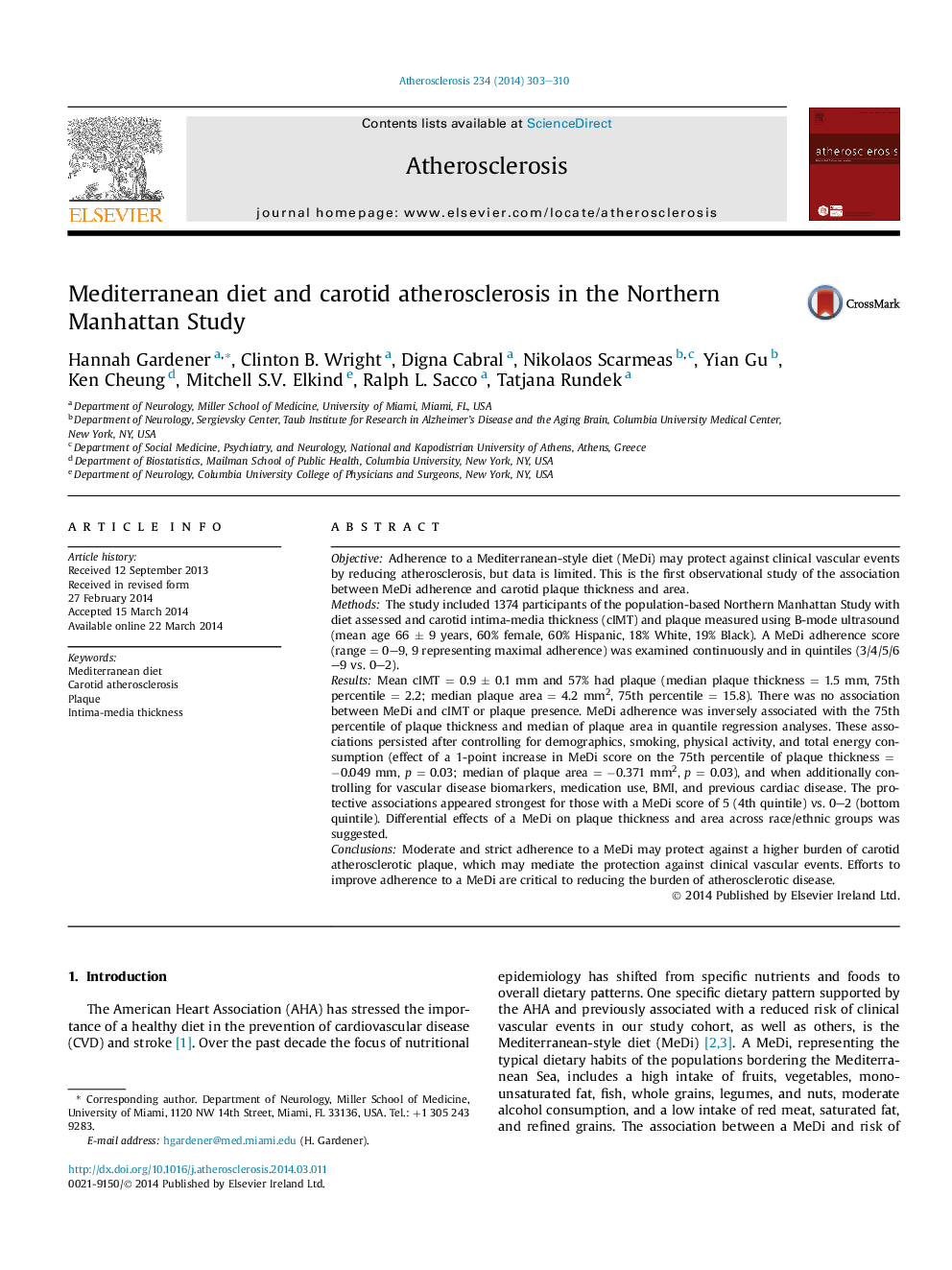| کد مقاله | کد نشریه | سال انتشار | مقاله انگلیسی | نسخه تمام متن |
|---|---|---|---|---|
| 5946783 | 1172361 | 2014 | 8 صفحه PDF | دانلود رایگان |
- This is the first observational study of MeDi adherence and carotid atherosclerosis.
- MeDi adherence was inversely related to plaque thickness and area.
- There was no association between MeDi adherence and carotid IMT.
- Efforts to improve MeDi adherence are critical to reducing atherosclerotic burden.
- These associations may mediate an effect of a MeDi on clinical vascular events.
ObjectiveAdherence to a Mediterranean-style diet (MeDi) may protect against clinical vascular events by reducing atherosclerosis, but data is limited. This is the first observational study of the association between MeDi adherence and carotid plaque thickness and area.MethodsThe study included 1374 participants of the population-based Northern Manhattan Study with diet assessed and carotid intima-media thickness (cIMT) and plaque measured using B-mode ultrasound (mean age 66 ± 9 years, 60% female, 60% Hispanic, 18% White, 19% Black). A MeDi adherence score (range = 0-9, 9 representing maximal adherence) was examined continuously and in quintiles (3/4/5/6-9 vs. 0-2).ResultsMean cIMT = 0.9 ± 0.1 mm and 57% had plaque (median plaque thickness = 1.5 mm, 75th percentile = 2.2; median plaque area = 4.2 mm2, 75th percentile = 15.8). There was no association between MeDi and cIMT or plaque presence. MeDi adherence was inversely associated with the 75th percentile of plaque thickness and median of plaque area in quantile regression analyses. These associations persisted after controlling for demographics, smoking, physical activity, and total energy consumption (effect of a 1-point increase in MeDi score on the 75th percentile of plaque thickness = â0.049 mm, p = 0.03; median of plaque area = â0.371 mm2, p = 0.03), and when additionally controlling for vascular disease biomarkers, medication use, BMI, and previous cardiac disease. The protective associations appeared strongest for those with a MeDi score of 5 (4th quintile) vs. 0-2 (bottom quintile). Differential effects of a MeDi on plaque thickness and area across race/ethnic groups was suggested.ConclusionsModerate and strict adherence to a MeDi may protect against a higher burden of carotid atherosclerotic plaque, which may mediate the protection against clinical vascular events. Efforts to improve adherence to a MeDi are critical to reducing the burden of atherosclerotic disease.
Journal: Atherosclerosis - Volume 234, Issue 2, June 2014, Pages 303-310
